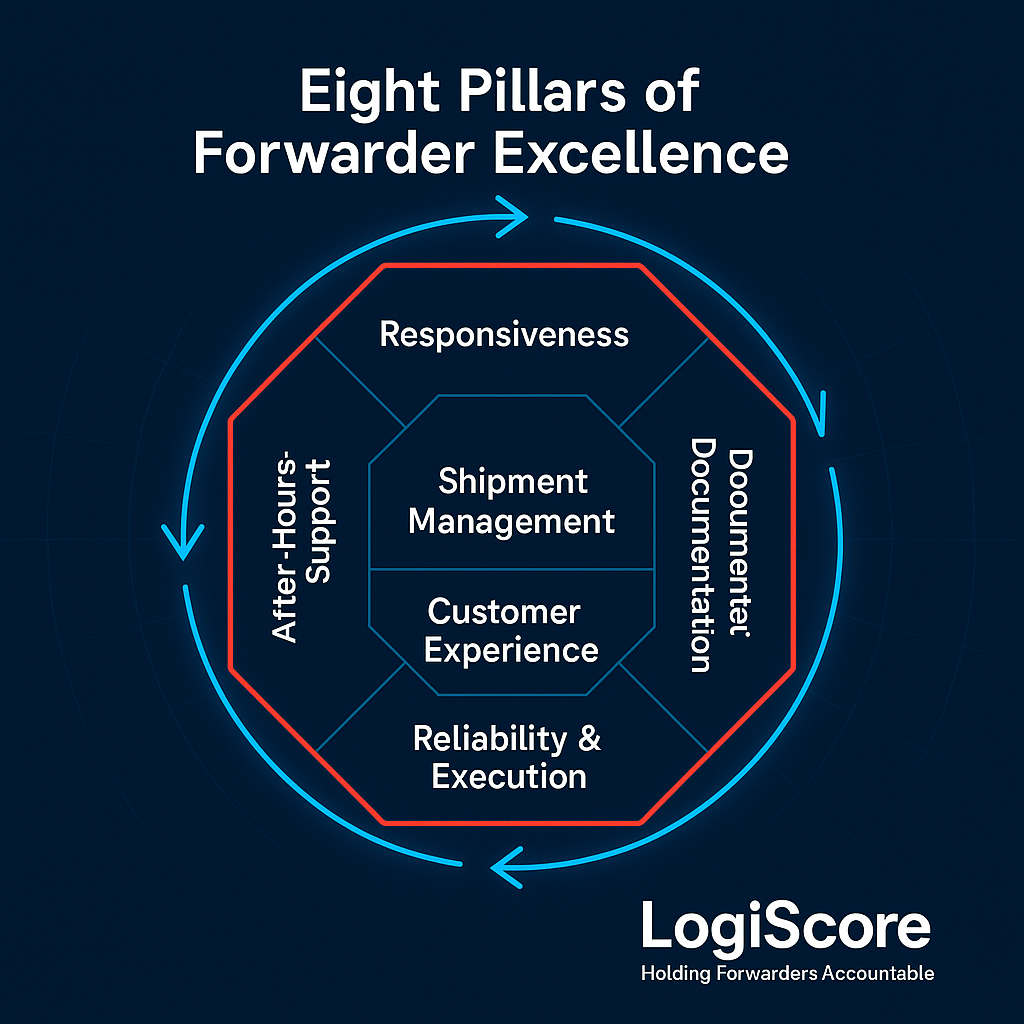Elevating Freight Forwarder Performance Standards

In today’s volatile global trade environment, shippers no longer see freight forwarders as transactional service providers—they expect them to be proactive partners. Research by Drewry shows that 42% of shippers cite service reliability as a bigger concern than cost when selecting logistics partners, while Transport Intelligence highlights responsiveness, technology adoption, and visibility as the top differentiators in forwarder performance.
To assess excellence, eight core performance areas define a best-in-class forwarder:
- Responsiveness – Timely acknowledgements and clear turnaround times build trust.
- Shipment Management – Proactive milestone updates and recovery plans protect supply chains.
- Documentation – Accuracy and timeliness in B/Ls, AWBs, and invoicing ensure compliance and avoid disputes.
- Customer Experience – Named contacts, issue ownership, and vertical expertise provide confidence to shippers.
- Technology Process – Digital integration, visibility tools, and KPI reporting drive efficiency.
- Reliability & Execution – Consistent on-time pickup/delivery and low claims ratios differentiate forwarders.
- Proactivity & Insight – Forwarders must guide clients through rate trends, geopolitical shifts, and routing alternatives.
- After-Hours Support – 24/7 escalation channels are a strategic advantage for critical shipments.
Shippers increasingly use structured benchmarks to compare providers. Platforms like LogiScore.net introduce accountability by scoring forwarders across these dimensions, bringing transparency to a traditionally opaque sector.
As supply chains face disruptions ranging from Red Sea attacks to pandemic-related bottlenecks, forwarders that excel in these eight pillars will secure long-term partnerships. In a market where reliability is scarce, measured excellence becomes the new currency of trust.
Leave a Reply
You must be logged in to post a comment.